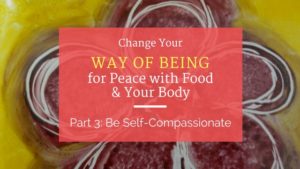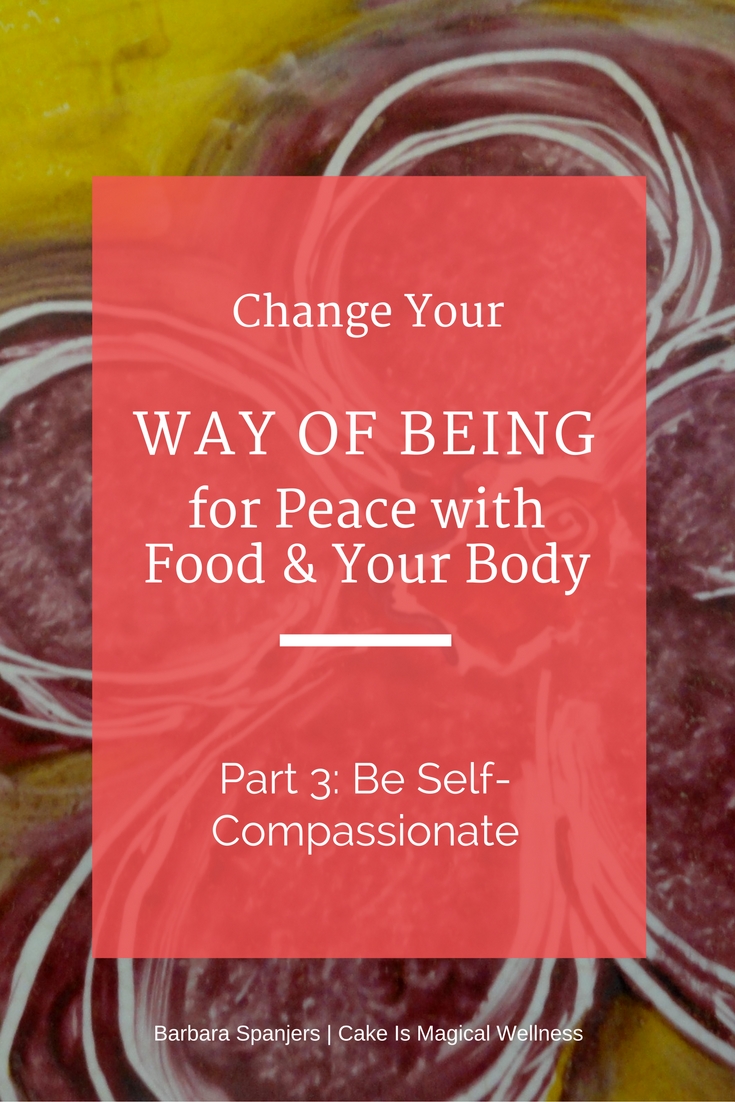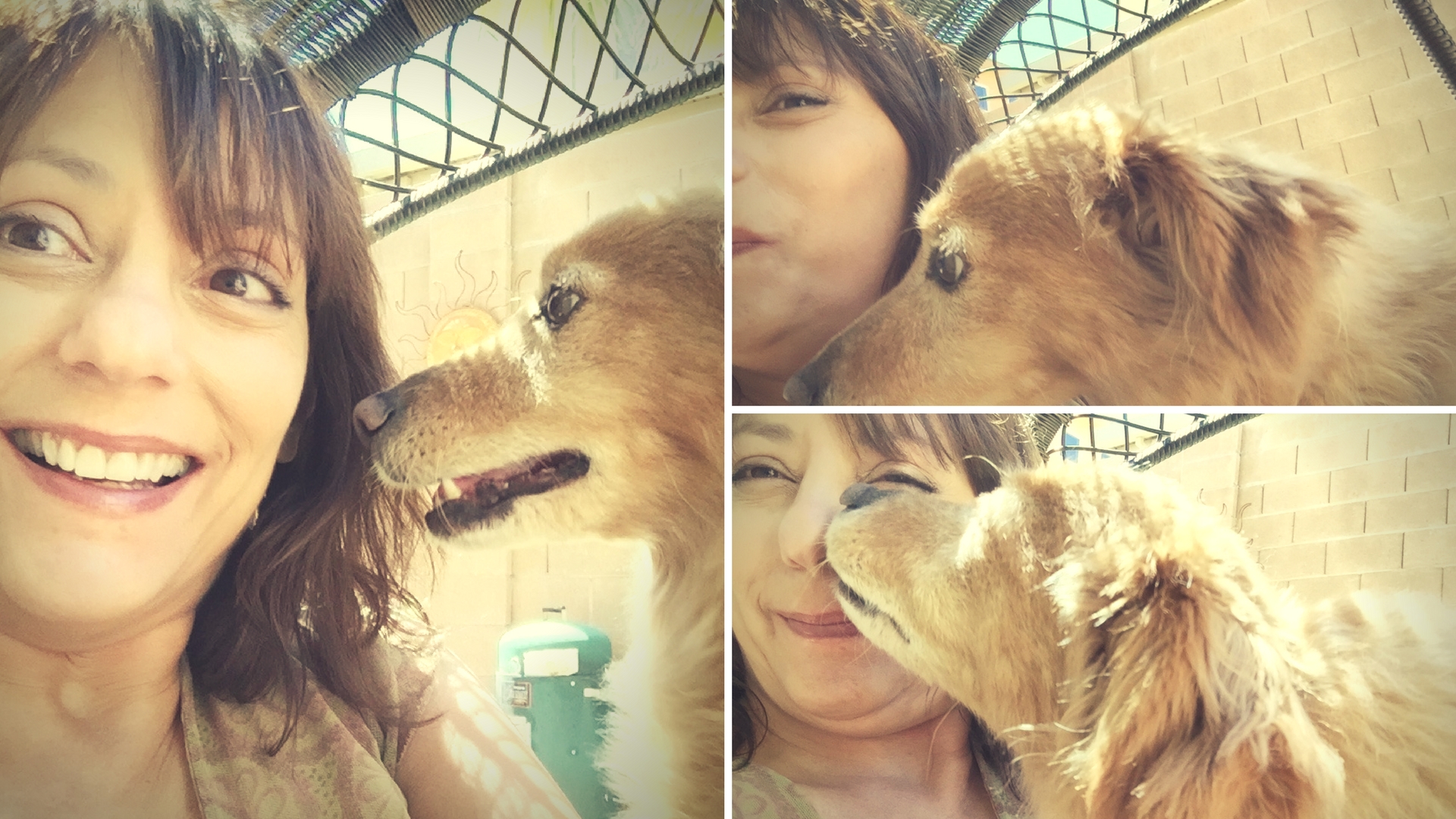
If you combine last week’s theme of being curious with this week’s theme of being self-compassionate, you pretty much have the answer to how to have peace with food and your body. Judgment is the enemy, whereas curiosity and compassion will change your life for the better. Ta-da! Thank you and good night!
But seriously, it’s not so easy to do, right? Maybe the idea of replacing judgment with curiosity and self-compassion is new to you. Or maybe you do already think it would help.
Knowing something in your head and really feeling it in your soul are two different things. Like so many profound things, it’s simple but not so easy. If it were easy, no one would stress out over what they eat and their body size. (And I’d have to find a new profession.)
There would be less stress, depression, anxiety, and eating disorders out there. More peace, happiness, and more self-esteem. Can you imagine what that might be like? I hope so!
[Tweet “Self-compassion is one of the most powerful tools to combat your inner mean girl.”] You are probably very compassionate towards others. But how compassionate are you to yourself? Like many women, you probably learned to put yourself last. You learned to be polite, take care of others’ needs, and not even believe you deserve the same respect. But you do!
I have met so many women who have some misconceptions about self-compassion, so here’s some clarification.
Self-compassion is not selfishness.
It’s not self-indulgence.
Although self-compassion may increase your self-esteem, it’s a different practice.
Self-compassion is about giving yourself consideration and understanding, just like you would do for a loved one.
And self-compassion is one of the most powerful tools to combat your inner mean girl.
When you practice self-compassion, you will start to see a reduction in destructive emotions like shame or misguided guilt. What’s the difference? Guilt is an emotion related to a specific behavior. Guilt can be a wonderfully useful emotion that guides you to towards making amends to someone you harmed. However, if you are feeling guilty about eating French fries, it’s misplaced. If you must imagine a reason to feel guilty for eating French fries, here you go: if you steal them from a small child, then go ahead and feel guilty.
Shame is related to guilt, but is fundamentally different. It’s an emotion that is directed towards feeling negatively towards your core sense of self. It rarely helps you do better, feel better, or be better. If you’re beating yourself up for having normal human appetites and judging food as good or bad (and by extension, judging yourself as good or bad), it will never have a positive outcome.
Here’s an example of guilt vs. shame:
Guilt: “I feel bad over what I did.” This awareness helps you make amends.
Shame: “I’m a bad person because of what I did.” Because shame is so overwhelming of an emotion, you are likely to shut down and spiral downward.
Shame will never help you take better care of yourself or like yourself more.
This includes shame that masquerades as inspiration, like those “No Excuses!” memes.
Maybe you think you need to somehow change your body (like lose weight) or “eat clean” to feel better about yourself. But the truth is, those are temporary fixes. Self-compassion is what will give you a deeper, more stable appreciation for yourself.
Start extending some compassion to yourself. When you feel like criticizing yourself, ask, “Is this how I would treat a friend? What can I say instead?” You’ll be surprised at what a difference this can make.
The next post in this series will focus on being mindful.







